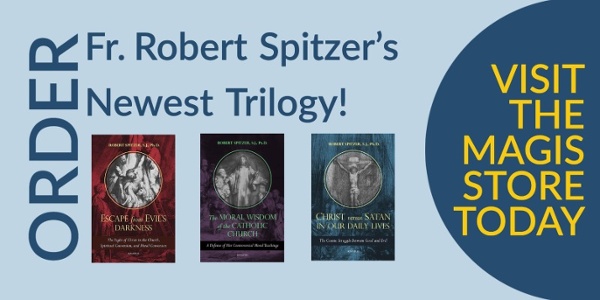In his teaching on Truth, St. Thomas Aquinas tells us that the object of the intellect is Truth. In correspondence, an intellectual conversion would have to do with the intellect’s discovery and conformity to its object, namely, Truth. As such, a concrete aspect of intellectual conversion would be the gathering of external evidence for God, Jesus, and the soul that is based on the objective order of reason.
This development of exterior evidence reasonably and responsibly grounds our interior awareness of God and the desires God awakens. As this article will attempt to show, the gathering of external evidence can go beyond a mere apprehension of Truth and take the person on an authentic intellectual conversion that will provide a deeper awareness and understanding of reality.
Truth as a Transcendental
In earlier posts, Fr. Spitzer provides the discovery of Truth as a transcendental (Truth as convertible with Being, Goodness, Love, Unity, and Home) through the argument first articulated by Plato.
Based on the idea of truth as a transcendental—or perfect and absolute Truth—it follows that an intellectual conversion can take place through asking questions about the world around us. This process of questioning reality does not leave the questioner empty but rather begins to transform the seeker into understanding the meaning of reality.
Intellectual Conversion in the Inquiry of Truth
Bernard Lonergan breaks down the human person’s inquiry of Truth into three steps:- Experience
- Understanding
- Judgment
For Lonergan, intellectual conversion is correlated with the person recognizing himself as a “knower,” that is, not merely a person that experiences reality but, through this three-part process, discovers the meaning of reality.
Using Aristotle to Understand Reality
We can also look to Aristotle to help us go past the mere appearance of reality and into a deeper understanding through his four causes. The four causes not only tell what a thing is (statue), what it is made of (marble), who made it (sculptor) but also its purpose and end—namely, to be marveled at and incite viewers into realms of beauty and mystery.
The final cause, wrapped up with an understanding of the other three causes, gives us a fullness to understand the object and discover its existential meaning and purpose. Hence, as intellectual “knowers,” we not only see and experience reality, but we go a step further to discover the meaning behind all that exists.
The discovery of Truth is transformative because, as Aquinas teaches, it brings us into participation with the Divine Intellect. This participation leads the person further on the journey of intellectual conversion, where the fruit lies in being able to see and understand reality as it really is.
Intellectual Conversion in Light of the Three Types of Conversions
Conversion takes place on three levels:
All three types of conversion complement one another in directing the individual in a self-transforming process that ultimately leads to the main goal, which is love for God.
One may ask: is it possible to just have an intellectual conversion without a moral conversion (which focuses on our moral behavior) and spiritual conversion (which focuses on our love for God)? Although each type of conversion has the power of leading and strengthening one in the direction of another, it is possible to be stronger in one type of conversion over another.
For instance, many scholars have used the example of St. Augustine. St. Augustine first encountered an intellectual conversion into Christianity, then subsequently, and eventually, he began to fall deeply in love with God (spiritual conversion) and change the way he lived (moral conversion). So, yes, it is possible to know that God exists intellectually. However, it takes the other two conversions to have the grace of being in love with God (spiritual) and conforming your actions to His will (moral).
The Journey Toward Intellectual Conversion
The transformative process of intellectual conversion takes place through the study of Truth, which provides external evidence for the faith. We encourage you to make use of the resources provided by Fr. Spitzer and the Magis Center that aim to help along the way of intellectual conversion.
Specifically, be sure to check out Fr. Spitzer’s books New Proofs for the Existence of God and The Souls Upward Yearning: Clues to our Transcendent Nature from Experience and Reason.
*This article is part of a three-part series first articulated here.

